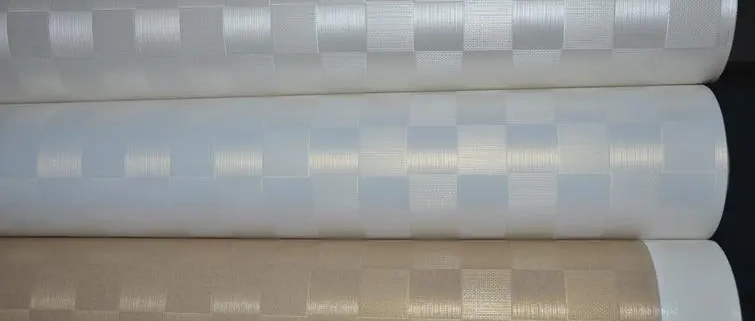What is the Optimal Thickness of PVC Film?
What is the Optimal Thickness of PVC Film?
The optimal thickness of PVC film depends on its specific use. Different applications have different thicknesses. Take the common thickness range of furniture, walls, and floors as an example:
Furniture and cabinet veneer
The thickness of PVC film used on furniture and cabinet surfaces is usually between 0.1mm and 0.3mm. This thickness can provide sufficient protection and has good flexibility, which makes it easy to fit irregular surfaces.
The reasons are as follows:
- Sufficient thickness to protect furniture: Generally, a thickness of 0.1mm to 0.3mm on the surface of furniture is sufficient to protect it. The specific thickness depends on the furniture. Furniture that is not often used and worn can use a thinner one. Furniture that is often used and worn or requires good waterproofness should choose a thicker PVC film.
- Flexibility and ease of operation: Furniture may have curved surfaces, especially some furniture with complex shapes, too thick thickness, not good flexibility, and may not fit the surface well. It is also not easy to cut, which increases the difficulty of operation and easily leads to bubbles or wrinkles.
- Cost and beauty: Generally speaking, the cost of thin PVC film is lower than that of thick one. When the film thickness meets the demand, the cost should also be considered. Moreover, a PVC film that is too thick will increase the thickness of the furniture and affect the comfort of the furniture.
Wall decoration
The thickness of PVC film used for walls is usually around 0.15mm to 0.2mm. This thickness can ensure the durability of wall decoration while maintaining the flexibility and easy construction of the film.
The reasons are as follows:
- Wear resistance: The wall surface only needs to withstand daily minor wear, scratches, and bumps. The protection provided by the thickness of 0.15mm to 0.2mm is enough to meet daily needs.
- Flexibility and ease of operation: PVC film in this thickness range has good flexibility and can be well applied to curved and irregular surfaces. This thin thickness is also easy to cut and the operation is easy.
- Moisture and stain resistance: Walls are usually not exposed to water, and the moisture resistance of PVC film in this thickness range is enough to meet daily needs. Its surface is smooth and non-porous which makes it easy to absorb surface attachments, and it can resist stains, which can effectively prevent stains and make it easy to clean.
- Covering ability: Some walls may have some small flaws or unevenness in some areas. PVC film of this thickness can effectively cover these flaws and unevenness, making the wall look better.
- Aesthetics: PVC film in this thickness range can achieve good surface gloss and texture, which makes it ideal for presenting clear patterns and colors.
Floor veneer
The PVC film used for the floor is usually thicker, about 0.3mm to 0.7mm. This thickness can provide better wear resistance and impact resistance and is suitable for use in high-traffic areas.
The reasons are as follows:
- Wear resistance: Floors are frequently used and belong to high-wear areas. They are worn almost every day, such as when people walk, and pet cats grind claws, etc. Such high-wear applications should use thicker PVC films to protect the floor. The thicker the thickness, the more durable it is.
- Impact resistance: Compared with other furniture or applications in the home, floors are more likely to withstand the impact of heavy objects, because people may accidentally drop objects, or pets at home may accidentally push objects or furniture over. PVC films with a thickness of 0.3mm to 0.7mm have better impact resistance and can effectively reduce the impact of heavy objects on the floor.
- Comfort: The structure of PVC films of this thickness is more stable, and it is not easy to warp and deform. At the same time, the thicker the film, the higher the softness, it can provide family members with a more comfortable feeling and relieve fatigue.
- Waterproof: Compared with walls, floors are more likely to be exposed to humid environments, especially bathroom and kitchen floors, which are often exposed to water. Thicker PVC films have better waterproof properties because they are thick enough to effectively prevent water penetration and protect the floor from being soaked by water.
- Adaptability: The floor is used in a wide range of environments and load conditions, and thicker PVC films can adapt to a wider range of usage scenarios. Whether it is a small number of people walking in a home or a high-traffic crowd in a commercial setting, this thickness of PVC film can maintain excellent performance.




